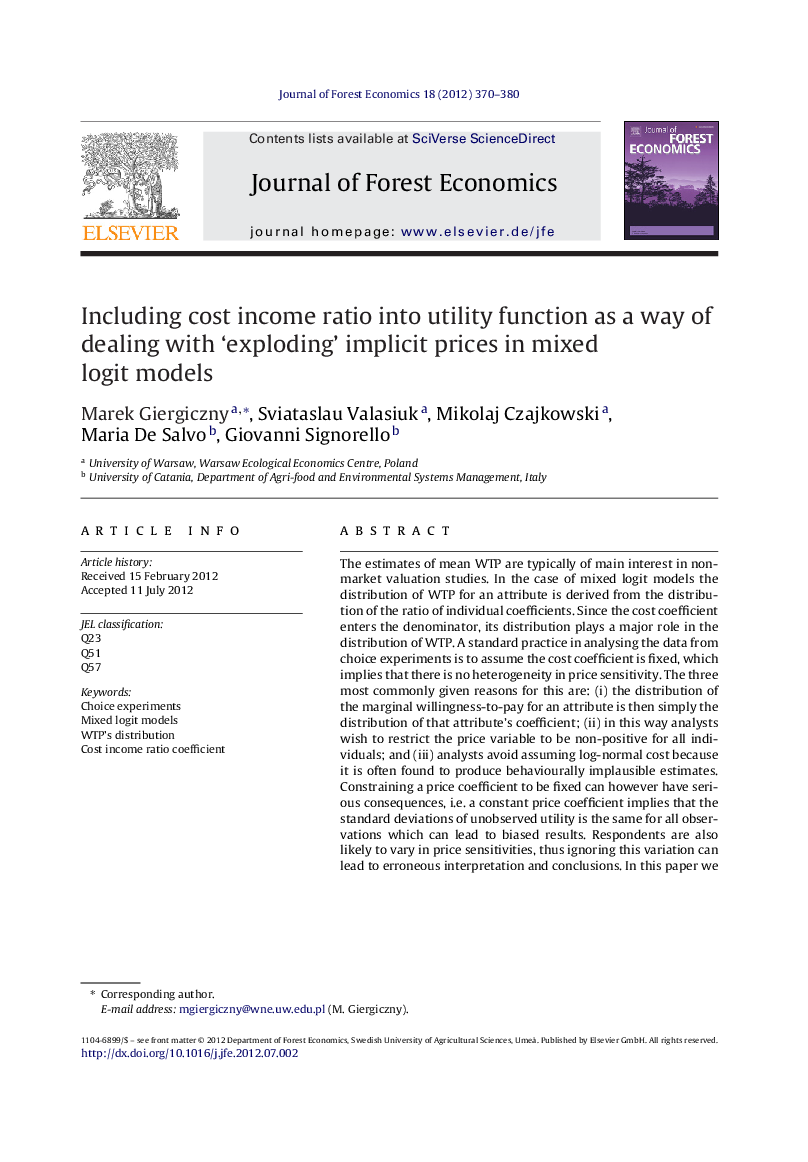| Article ID | Journal | Published Year | Pages | File Type |
|---|---|---|---|---|
| 92316 | Journal of Forest Economics | 2012 | 11 Pages |
The estimates of mean WTP are typically of main interest in non-market valuation studies. In the case of mixed logit models the distribution of WTP for an attribute is derived from the distribution of the ratio of individual coefficients. Since the cost coefficient enters the denominator, its distribution plays a major role in the distribution of WTP. A standard practice in analysing the data from choice experiments is to assume the cost coefficient is fixed, which implies that there is no heterogeneity in price sensitivity. The three most commonly given reasons for this are: (i) the distribution of the marginal willingness-to-pay for an attribute is then simply the distribution of that attribute's coefficient; (ii) in this way analysts wish to restrict the price variable to be non-positive for all individuals; and (iii) analysts avoid assuming log-normal cost because it is often found to produce behaviourally implausible estimates. Constraining a price coefficient to be fixed can however have serious consequences, i.e. a constant price coefficient implies that the standard deviations of unobserved utility is the same for all observations which can lead to biased results. Respondents are also likely to vary in price sensitivities, thus ignoring this variation can lead to erroneous interpretation and conclusions. In this paper we demonstrate a choice experiment exercise in which specifying a log-normal cost results in implausibly large WTP, however, adding into the utility function the cost income ratio prevents implicit prices from ‘exploding’.
